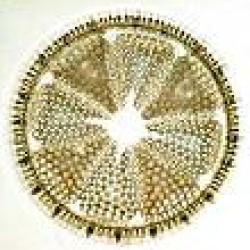Source Institutions
Source Institutions
Add to list Go to activity
Activity link broken? See if it's at the internet archive

In this activity, learners will plot the distribution of various oozes using information from sediment maps. When skeletal remains of microscopic organisms make up more than 30% of the sediment, it is called "ooze." During this activity, learners will describe the characteristics of different types of seafloor sediments and oozes, predict the distribution of calcareous and siliceous oozes and compare and discuss locations of sediments and oozes.
- Under 5 minutes
- 45 to 60 minutes
- free per student
- Ages 14 - 18
- Activity, Lesson/Lesson Plan
- English
Quick Guide
Materials List (per student)
- Global map
- Sediment Distribution Patterns map
- Pen or pencil
Subjects
-
Earth and Space Science
-
Earth Structure
- Rocks and Minerals
- Oceans and Water
-
Earth Structure
-
Life Sciences
-
Diversity of Life
- Protists and Fungi
- Classification
- Ecology
-
Diversity of Life
-
Mathematics
-
Data Analysis and Probability
- Data Analysis
- Data Collection
- Data Representation
-
Data Analysis and Probability
-
Physical Sciences
- Chemistry
-
The Nature of Science
-
The Scientific Process
- Gathering Data
- Formulating Explanations
- Communicating Results
-
The Scientific Process
Informal Categories
- Nature and Environment
Audience
To use this activity, learners need to:
- see
- see color
- read
- use keyboard
- use mouse
- touch
Learning styles supported:
- Involves hands-on or lab activities
Other
Includes alignment to state and/or national standards:
This resource is part of:
Access Rights:
- Free access
By:
- Lawrence, Lisa Ayers
Rights:
- All rights reserved, Virginia Sea Grant Marine Advisory Program,
Funding Sources:
- NOAA Sea Grant
- National Marine Educators Association
